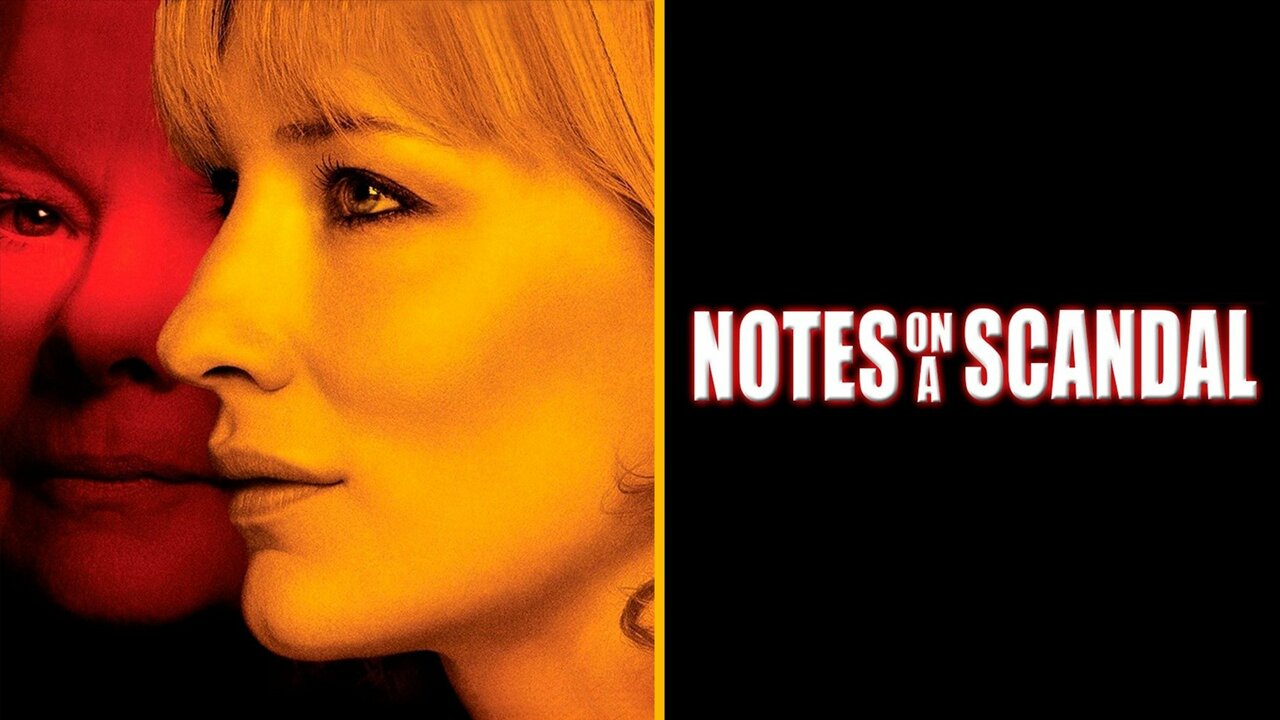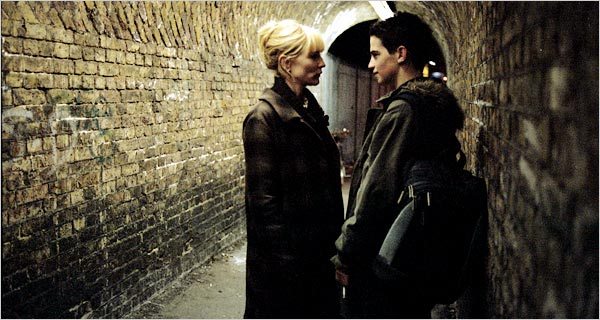Notes on a Scandal (2006)

Notes on a Scandal (2006) is a British psychological thriller directed by Richard Eyre and produced by Robert Fox and Scott Rudin. Based on the 2003 novel by Zoë Heller, the film is adapted by Patrick Marber. This dark and gripping drama explores the complexities of human relationships, obsession, and the consequences of secrets. With a stellar cast including Judi Dench, Cate Blanchett, and Bill Nighy, Notes on a Scandal is a haunting exploration of power, manipulation, and betrayal.
The plot of Notes on a Scandal centers around the relationship between two women, Sheba Hart (Cate Blanchett), a new teacher at a London secondary school, and Barbara Covett (Judi Dench), a veteran teacher who becomes obsessed with Sheba. When Sheba begins an illicit affair with a student, Barbara becomes her confidante, yet she also harbors a deep fascination and fixation on Sheba’s life. The story is told through Barbara’s perspective, as she records her thoughts and feelings in a journal, which leads to a shocking and dramatic turn of events as secrets unravel and the consequences of the affair begin to take hold.
One of the film’s standout features is the extraordinary performances of its lead actresses. Judi Dench, as the cold and calculating Barbara, delivers a chilling portrayal of a woman who has lived a solitary and repressed life. Her character’s obsession with Sheba and her manipulation of the situation are deeply unsettling, yet Dench infuses Barbara with a vulnerability that makes her both a tragic and menacing figure. Cate Blanchett, as Sheba, brings warmth and complexity to her character, making her affair with the student both morally questionable and emotionally compelling. The dynamic between the two women forms the emotional core of the film, with the contrasting performances of Dench and Blanchett creating a tense and fascinating relationship.
Notes on a Scandal also excels in its exploration of themes such as loneliness, power, and manipulation. Barbara’s isolation is evident throughout the film, as she is a woman who has been rejected by society and is desperate for connection. Her obsessive behavior toward Sheba stems from her need for control and attention, and her willingness to use the affair as a means to regain some power over her own life. The film also delves into the moral complexities of Sheba’s affair, portraying how one wrong decision can lead to devastating consequences. The tension between right and wrong, and the consequences of betrayal, are central to the narrative.

The film’s direction and cinematography play an essential role in building its ominous atmosphere. Richard Eyre’s direction ensures that the tension and suspense are palpable throughout, making every moment feel charged with unease. The cinematography, with its muted color palette and stark lighting, reflects the film’s themes of repression, secrecy, and moral ambiguity. These visual choices effectively enhance the psychological tension, immersing the viewer in a world where nothing is as it seems and every character has a hidden agenda.

The screenplay by Patrick Marber is another key element that elevates the film. Based on Zoë Heller’s novel, the adaptation skillfully weaves together the various layers of the story, building suspense and drawing out the complexities of the characters. The dialogue is sharp and pointed, with moments of dark humor providing brief relief from the tension. The film’s pacing allows for gradual character development, leading to a powerful and unsettling conclusion that leaves a lasting impact on the viewer.

In conclusion, Notes on a Scandal (2006) is a masterfully crafted psychological thriller that explores the dark side of human nature. With powerful performances by Judi Dench and Cate Blanchett, a haunting atmosphere, and a compelling script, the film is a deeply engaging and thought-provoking experience. It examines the complexities of obsession, morality, and betrayal, leaving audiences reflecting on the consequences of secrets and the fragile nature of trust. Notes on a Scandal is a film that captivates with its psychological depth and leaves a lingering sense of unease long after the credits roll.











